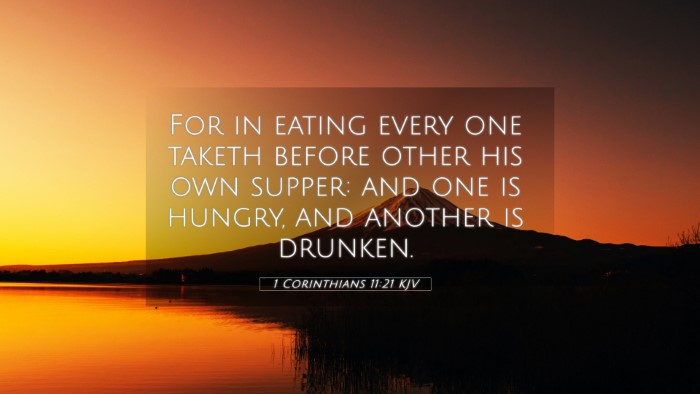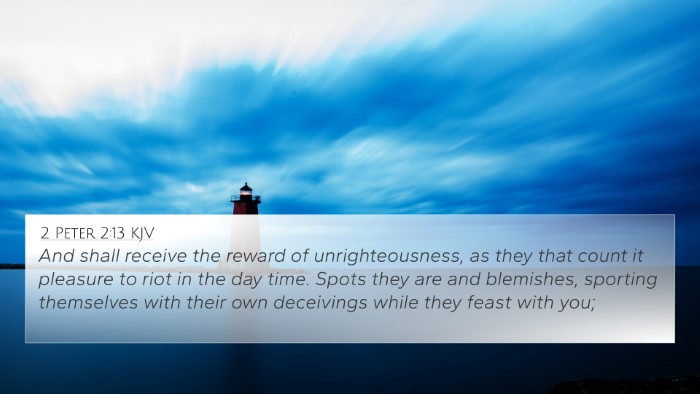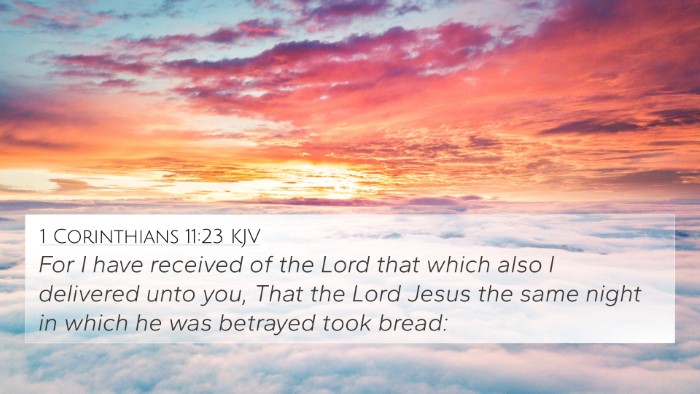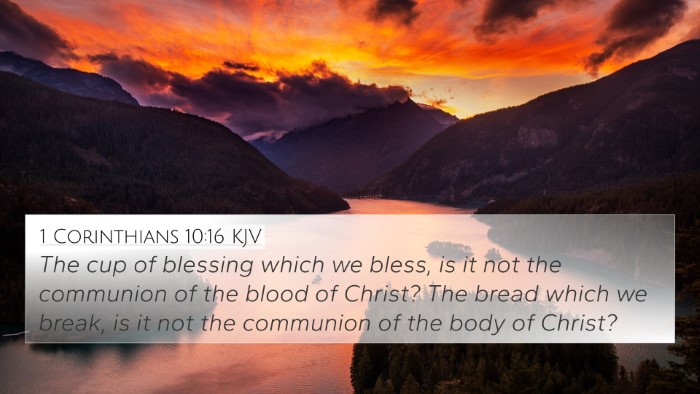Understanding 1 Corinthians 11:21
Verse: "For in eating, every one taketh before other his own supper: and one is hungry, and another is drunken." (1 Corinthians 11:21)
Summary of the Verse Meaning
This verse highlights the issue of division and selfishness during communal meals among the Corinthians. The apostle Paul addresses the improper manner in which the Corinthians partake in the Lord’s Supper, revealing that some eat excessively while others go hungry. This behavior is contrary to the spirit of unity and love that should characterize the Christian community.
Key Insights from Public Domain Commentaries
-
Matthew Henry: Henry emphasizes that the practice of some Corinthians was to prioritize their own indulgence over the communal aspect of the Lord's Supper. He notes that true communion involves sharing and caring for one another, rather than selfishly consuming food.
-
Albert Barnes: Barnes points out that such behavior illustrates a lack of regard for the others in the fellowship. He argues that this disruptive practice contradicts the essence of Christian love and communal worship, which should foster unity rather than emphasize individual excess.
-
Adam Clarke: Clarke interprets this verse as a reflection of the broader social issues within the Corinthian church, where social status and wealth inequality manifest even in spiritual practices. He calls for a return to the fundamental principle of equality and consideration within the body of Christ.
Connections to Other Bible Verses
1 Corinthians 11:21 can be cross-referenced with the following verses:
- Acts 2:44-46: Highlights the early church's practice of sharing and unity during communal meals.
- 1 Corinthians 10:17: Emphasizes the unity of believers as one body in Christ.
- Galatians 5:13: Encourages believers to serve one another in love instead of gratifying their own desires.
- Philippians 2:3-4: Calls for humility and consideration of others' needs above one's own.
- Matthew 25:35-40: Reminds believers of the importance of serving and caring for the 'least of these' as an extension of faith.
- John 13:34-35: Jesus’ commandment to love one another as evidence of discipleship.
- Romans 12:10: Encourages believers to be devoted to one another in brotherly love.
Thematic Bible Verse Connections
The themes of community, unity, and love are prevalent throughout the New Testament. In exploring these themes, we can identify strong parallels and connections between scripture that highlight the importance of communal fellowship.
Comparative Bible Verse Analysis
This verse serves as a vital starting point for understanding the broader context of Christian fellowship. By analyzing related scriptures, we can gain deeper insights into how believers are called to behave towards one another, especially in communal settings such as the Lord’s Supper.
Tools for Cross-Referencing Bible Texts
Utilizing tools like a bible concordance or a bible cross-reference guide can significantly enhance one's understanding of the connections between scripture. These resources help identify thematic Bible verse connections and provide comprehensive Bible cross-reference materials for those seeking to explore inter-Biblical dialogue.
Practical Applications
- Utilize a Bible cross-reference system to enhance study and sermon preparation.
- Engage in cross-referencing Bible study methods using passages that directly relate to themes of community and love.
- Employ bible study tools to find connections between New Testament teachings and the Old Testament's foundations of community.
Conclusion
In summary, 1 Corinthians 11:21 serves not only to highlight the issues of the Corinthian church but also calls all believers towards a deeper understanding of unity, love, and sacrificial sharing. Cross-referencing this verse with other scriptures allows for a richer interpretation and application of its lessons in our lives today.
As you continue to explore the connections between Bible verses, remember the call to love and unity that reverberates throughout the New Testament.






